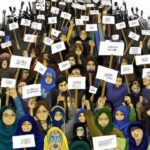Political corruption is a widespread issue that plagues societies across the globe. It occurs when politicians and public officials abuse their power for personal gain, undermining the trust and integrity of the political system. This betrayal of the public’s trust can take various forms, such as bribery, embezzlement, nepotism, and favoritism. The consequences of political corruption are far-reaching and detrimental. It stifles economic development, infringes on human rights, and deepens social inequality. Moreover, it erodes citizens’ faith in their government and stifles democratic processes. Tackling political corruption requires a comprehensive approach that includes transparent governance, accountability, and strong legal frameworks. Only through collective efforts can we combat this corrosive problem and pave the way for a more just and equitable society.
Table of Contents
- Case studies of political corruption incidents
- Causes of political corruption
- Consequences of political corruption
- Strategies to combat political corruption
- Types of political corruption
(A corrupt political system.)
Political corruption is a grave issue that plagues governments around the world. It is the abuse of power by individuals in positions of authority, resulting in the unlawful or unethical use of public resources for personal gain. This kind of corruption undermines democracy, erodes trust in institutions, and hinders socio-economic development.
One form of political corruption is bribery, where government officials accept money or gifts in exchange for favorable treatment. Another form is embezzlement, where public funds are siphoned off for personal enrichment. Both of these acts betray the trust placed in these officials by the public.
Political corruption also manifests in nepotism and cronyism, where individuals are appointed to important positions based on personal relationships rather than merit. This undermines fair competition and prevents talented individuals from contributing to the development of their communities.
The consequences of political corruption are far-reaching. It leads to a misallocation of resources, as funds meant for public services like healthcare and education are diverted into private pockets. This perpetuates inequality and poverty, as the most vulnerable in society are denied access to essential services.
Moreover, political corruption undermines the rule of law, as those in power manipulate the legal system in their favor. It weakens democratic institutions and stifles the voice of the people, as citizens lose faith in their ability to effect change. This erosion of trust has a profound impact on the social fabric of a society.
To combat political corruption, it is essential to have strong and independent oversight institutions, such as anti-corruption commissions, that can investigate and prosecute cases of corruption. Transparency and accountability in public administration are crucial, as they create a culture where corruption is less likely to thrive.
Ultimately, eradicating political corruption requires a collective effort from both government and citizens. It requires a commitment to ethical leadership, a culture of integrity, and the empowerment of ordinary citizens to hold their leaders accountable. Only through these measures can we build a more just and equitable society, free from the chains of corruption.
Case studies of political corruption incidents
Political corruption is an issue that has plagued societies throughout history. The misuse of public power for personal gain has resulted in numerous cases of political corruption around the world. These incidents serve as important case studies in understanding the causes and consequences of such misconduct.
One prominent case of political corruption is the Watergate scandal that rocked the United States in the 1970s. It involved a break-in at the Democratic National Committee headquarters, which was subsequently linked to President Richard Nixon’s administration. The scandal led to investigations, resignations, and criminal convictions, leaving a lasting impact on American politics.
Another notable example is the corruption scandal that emerged in Brazil in recent years. Operation Car Wash, as it came to be known, exposed widespread bribery and kickback schemes involving top politicians and businessmen. The investigation uncovered a web of corruption that reached the highest levels of government, resulting in numerous arrests and a significant shift in public sentiment.
In India, the Bihar fodder scam stands out as a case that highlights the extent of corruption within the political system. It involved the embezzlement of funds meant for cattle feed, with government officials and politicians siphoning off millions of dollars. The scandal exposed the deep-rooted corruption and led to the conviction of several prominent politicians.
Moving to Africa, the case of Teodoro Obiang Nguema Mbasogo, the President of Equatorial Guinea, exemplifies the prevalence of political corruption. Under his rule, the country has faced allegations of embezzling vast amounts of oil revenue for personal gain. The lavish lifestyles of President Obiang and his family contrast sharply with the poverty experienced by the majority of the population.
These case studies illuminate the devastating effects of political corruption on societies. It erodes public trust, undermines economic development, and perpetuates inequality. Political corruption inhibits democratic processes and hinders the effective functioning of governments.
Efforts to combat political corruption require a combination of legal measures and societal change. Countries need robust anti-corruption laws, independent judiciary systems, and a free press to hold officials accountable. Additionally, fostering a culture of transparency, accountability, and ethical leadership is crucial in preventing corruption from taking root.
In conclusion, political corruption is a pervasive problem that has far-reaching consequences. Studying case studies of corruption incidents provides valuable insights into the causes, consequences, and potential remedies for this issue. By understanding the complexities of political corruption, societies can work towards creating a more equitable and just future.
Causes of political corruption
Political corruption is a grave issue that plagues many nations around the globe. Understanding the root causes of this pervasive problem is crucial in developing effective strategies to combat it.
The first cause of political corruption stems from the desire for personal gain. When individuals enter politics with the sole purpose of amassing wealth and power, corruption becomes a tempting path to achieve their goals. Greed and a lack of moral values drive these individuals to engage in illicit activities, such as accepting bribes or embezzling public funds.
Another major cause of corruption is the lack of transparency and accountability within political systems. When there are no checks and balances in place, politicians are more likely to abuse their power for personal gain. Weak institutional frameworks, ineffective law enforcement, and a culture of impunity contribute to the perpetuation of corruption.
In addition, political corruption often thrives in environments where there is a significant concentration of power. When power is concentrated in the hands of a few individuals or a dominant political party, it becomes easier for corruption to go unchecked. Monopolies, cartel-like arrangements, and lack of political competition create an atmosphere conducive to corrupt practices.
Furthermore, societal factors also contribute to the prevalence of political corruption. In societies where there is a culture of patronage and favoritism, politicians may feel pressured to engage in corruption to maintain their support base. Social norms that prioritize personal connections over meritocracy can undermine transparency and allow corruption to flourish.
Corruption is also fueled by the lack of citizen participation and awareness. When citizens are disengaged from the political process and lack the knowledge or means to hold their leaders accountable, corruption can thrive. Empowering citizens through education, access to information, and promoting civic participation can help combat corruption.
Lastly, globalization and international factors can exacerbate political corruption. Transnational bribery, money laundering, and tax havens provide corrupt politicians with avenues to hide their ill-gotten gains. Global financial flows and the influence of multinational corporations can also perpetuate corrupt practices if they are not adequately regulated.
In conclusion, the causes of political corruption are multi-faceted and interconnected. It is crucial for governments, civil society organizations, and citizens to work together to address these causes and implement robust anti-corruption measures. By tackling the root causes, we can create a more transparent and accountable political system that benefits all citizens.
Consequences of political corruption
Consequences of political corruption are far-reaching and devastating. First and foremost, it undermines trust in the government and erodes the foundation of democracy. When politicians prioritize personal gain over the welfare of the people, citizens become disillusioned and cynical. This leads to a disengaged electorate, weakening the democratic process.
Additionally, political corruption distorts public policy formation. Instead of making decisions based on the best interests of the nation, politicians influenced by corruption are more likely to promote policies that benefit themselves or their cronies. This results in a misallocation of resources and hindered economic growth.
Furthermore, political corruption perpetuates inequality and hampers social development. Corrupt politicians divert public funds intended for education, healthcare, and infrastructure into their own pockets, leaving ordinary citizens deprived of essential services. This exacerbates poverty and contributes to the widening gap between the rich and the poor.
Moreover, political corruption undermines the rule of law. When powerful individuals can bribe officials or manipulate the legal system, justice becomes compromised. This creates a culture of impunity where the rich and influential can escape punishment for their crimes, while the weak and marginalized suffer the consequences.
In addition, political corruption weakens national security. Corrupt politicians often engage in illicit activities, such as drug trafficking or money laundering, to fuel their greed. This compromises the integrity of the state and facilitates the operations of criminal organizations. It also undermines efforts to combat terrorism and narcotics trade, perpetuating insecurity.
Furthermore, political corruption deters foreign investments and hinders economic development. Companies are reluctant to invest in countries where corruption is widespread, as it increases business costs and heightens risks. This deprives nations of much-needed economic growth, job opportunities, and technological advancements.
Lastly, political corruption erodes public morality and damages social fabric. When corruption becomes normalized, it sets a dangerous precedent for future generations. It instills a mindset of dishonesty, favoritism, and unethical behavior. This erodes the values of integrity and public service, undermining the very fabric of society.
In conclusion, the consequences of political corruption are multi-faceted and detrimental. It erodes trust, distorts public policies, perpetuates inequality, undermines the rule of law, weakens national security, deters economic development, and damages public morality. It is imperative that strong measures be taken to combat corruption and safeguard the integrity of democratic institutions. Only then can societies flourish and prosper.
Strategies to combat political corruption
Strategies that can be employed to combat political corruption are of utmost importance in creating a transparent and accountable governance system. Firstly, promoting transparency and accountability through the use of technology can play a crucial role. Implementing e-governance systems allows for the digitization of government processes, reducing the scope for corruption. This ensures that all transactions and interactions between citizens and the government are recorded, making it easier to identify any corrupt practices.
Secondly, strengthening the role of civil society and the media in exposing corruption is vital. Empowering civil society organizations and independent media outlets to investigate and report on corrupt activities creates a checks-and-balances system. It encourages whistleblowers to come forward and ensures that corrupt individuals are held accountable for their actions.
Another strategy is to establish strong anti-corruption bodies with sufficient independence and resources. These bodies should have the authority to investigate corruption cases, prosecute offenders, and recover looted funds. By creating an environment where corruption is actively pursued and punished, the deterrent effect can help reduce corruption levels.
Promoting a culture of ethics and integrity within society is also crucial. This can be achieved through education and awareness campaigns that emphasize the negative consequences of corruption. Instilling ethical values and principles in individuals from a young age can help shape a future generation that rejects and actively fights corruption.
Additionally, promoting international cooperation in combating corruption is essential. Countries should work together to share information, collaborate on investigations, and ensure that corrupt individuals cannot find safe havens abroad. This requires the establishment and enforcement of international treaties and agreements, as well as supporting global initiatives such as the United Nations Convention against Corruption.
Lastly, empowering the judiciary and ensuring its independence is crucial in combating political corruption. Establishing specialized courts and increasing the capacity of judges to handle corruption cases can help expedite the legal process and ensure that justice is served.
In conclusion, strategies to combat political corruption encompass a multi-faceted approach. Through technological advancements, civil society empowerment, anti-corruption bodies, ethical education, international cooperation, and a robust judiciary, it is possible to create a transparent and accountable governance system that upholds the principles of integrity and honesty. By implementing these strategies, societies can regain their faith in the political process and build a better future for all.
Types of political corruption
Political corruption is a pervasive issue that exists in various forms across the globe. Understanding the different types of political corruption is crucial in addressing this problem effectively. The following are some prominent types of political corruption:
1. Bribery: This involves the exchange of money or gifts in return for political favors or influence. It can occur at different levels of government and has a detrimental impact on the integrity and fairness of the political system.
2. Nepotism: This refers to favoritism shown to family members or close associates in the political sphere, often resulting in unqualified individuals being appointed to influential positions. This practice undermines meritocracy and can lead to the mismanagement of resources.
3. Patronage: It involves granting favors, jobs, or contracts to loyal supporters or cronies, without considering the qualifications or abilities of the individuals involved. This type of corruption weakens institutions and diminishes public trust.
4. Embezzlement: This form of corruption involves the misappropriation or diversion of public funds for personal gain. It deprives citizens of much-needed resources for public services and projects, contributing to economic inequality and social unrest.
5. Electoral fraud: This occurs when the electoral process is manipulated to distort the outcome of elections. It can include voter intimidation, ballot-stuffing, or tampering with voter registration. Electoral fraud undermines the democratic process and undermines citizens’ faith in their government.
6. Extortion: Politicians may use their positions of power to extract money or other benefits from individuals or businesses. This type of corruption often involves threats or coercion and can have a significant impact on economic development and investor confidence.
7. Abuse of power: Political leaders may misuse their authority for personal gain or to suppress dissent. This can include censoring the media, limiting freedom of speech, or engaging in human rights abuses. Such abuses erode democracy and create a climate of fear and oppression.
8. Money laundering: This involves the illegal concealment of the origins of funds obtained through corrupt practices. Money laundering enables corrupt politicians to enjoy their ill-gotten gains, further fueling corruption and economic instability.
Recognizing and addressing these different types of political corruption is essential for creating transparent and accountable governance. By implementing robust anti-corruption measures, strengthening institutions, and promoting a culture of integrity, societies can work towards a more just and equitable future. It is crucial for citizens, civil society organizations, and international bodies to collaborate in the fight against political corruption, as its effects can be far-reaching and devastating.













